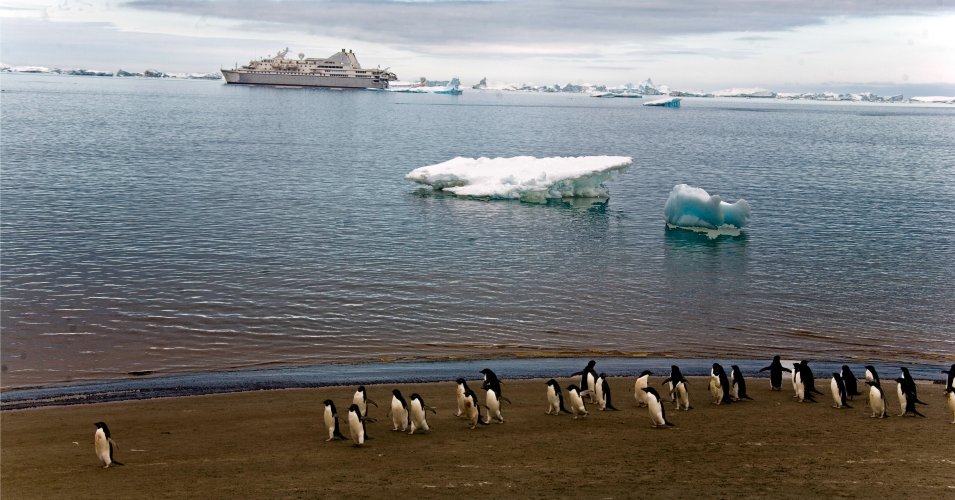Antarctic Warming Trend “Like Nothing We Have Ever Seen”

It was 69 degrees Fahrenheit in the Antarctic on Sunday.
From this article:
Brazilian scientists venture out to the remote Seymour Island every few days to take a temperature reading. But this reading floored them. “We are seeing the warming trend in many of the sites we are monitoring, but we have never seen anything like this,” Carlos Schaefer, a Brazilian government scientist who studies the Antarctic, told The Guardian, which first reported on the scientists’ findings.
Might be worth a look-see to check how the U.S. federal government is responding to the impending disaster. As Time Magazine reported in 2018: Throughout the Trump administration’s first year in office, the Environmental Protection Agency has been quietly scrubbing mentions of climate change and tweaking related language on its website – an effort critics have decried as scientific censorship. The EPA is far from the only federal agency to get a Trump-era work over. But monitoring organizations say it has suffered the most extensive revisions over the past year.
Mitigating climate change, or even admitting its existence, is a threat to Donald Trump, so expect more of the same.

Craig,
Weird sort of juxtaposition of political rant and pseudo-science.
Cutting through all the verbiage and assumptions, what are the actual facts?
One monitoring station operated by Argentina, reported an “record” temperature. But what does the record mean?
Well, first of all the equipment is old and not particularly well maintained. These facilities are often “adjusted readings” to compensate for equipment variances.
Secondly, monitoring has only been occurring since the mid 1960’s, and fifty years is a far too short time-frame for any kind of predictions or assumptions.
I have had the privilege of traveling to the Antarctic in the early 1970’s and was surprised to find how warm it can be in summer, especially with the reflective heat.
(I’ve also been bitten by mosquito’s in the Arctic permafrost! ).
The problem isn’t climate change(the climate has always be changing). The planet’s climate can’t be frozen to suit a sort of idyllic Utopia.
The real challenge is how use new technology and resources to changing conditions without major disruption to prosperity of peoples lives.
This requires objective and pragmatic analysis not divisive idealistic alarmist rancor and useless disruptive political action.